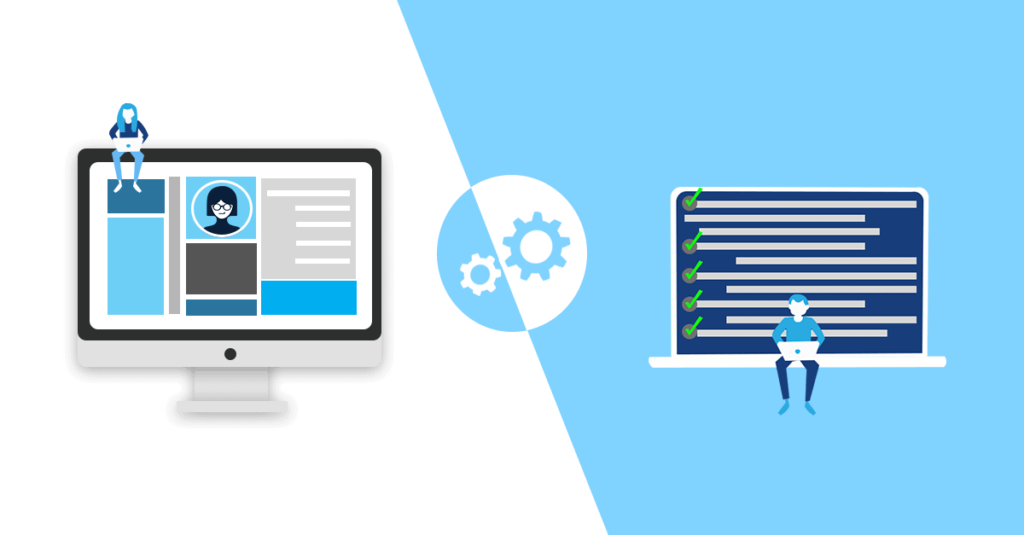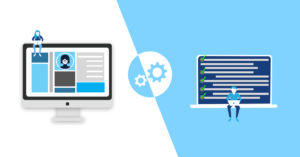Advanced Medical Software – a new take on clinical trials!
Clinical trials are essential for the development of new medical treatments and interventions. However, conducting clinical trials can be a complex and time-consuming process, involving numerous stakeholders, including study participants, clinicians, researchers, and regulatory authorities.
Medical software can help to streamline and optimize the clinical trial process by providing advanced technological solutions for data management, analysis, and reporting. It can also offer remote monitoring capabilities, which are particularly beneficial in today’s world, where the COVID-19 pandemic has necessitated social distancing measures and limited in-person interactions.
What are Clinical Trials?
Clinical trials are scientific investigations involving human participants to assess the effectiveness and safety of medical interventions, such as vaccines, drugs, devices, or behavioral treatments. These trials are conducted within a strictly controlled setting and ethical guidelines, designed to answer specific research questions.
The significance of clinical trials lies in their ability to offer crucial information about the safety and efficacy of medical interventions before they are released to the public. They help to establish the safety and effectiveness of new treatments, which can lead to improvements in patient outcomes. Additionally, clinical trials play a crucial role in advancing medical research by providing regulatory agencies, like the FDA, with the data required for the approval of new treatments and interventions.
Furthermore, clinical trials offer patients access to potentially life-saving treatments that are not yet available to the public, along with expert medical care. By participating in clinical trials, patients can also contribute to the advancement of medical research.
Overall, clinical trials are vital for improving medical research and enhancing patient outcomes. They serve as a means to determine the safety and effectiveness of new treatments and interventions, while also providing patients with the opportunity to access potentially life-saving therapies.
Medical software development is playing a crucial role in revolutionizing the clinical trial process in several ways, including:
- Automating data collection and analysis: Medical software can automate the collection and analysis of data from clinical trials, resulting in time-saving and minimizing the risk of human error.
- Improving patient safety: Medical software can detect adverse events and safety concerns during clinical trials, ensuring the safety of study participants.
- Facilitating collaboration: Medical software can enable effective communication and collaboration among researchers, clinicians, and other stakeholders involved in clinical trials.
- Enabling remote monitoring: Medical software can remotely monitor study participants, reducing the need for in-person visits and improving patient convenience.
- Increasing efficiency: Medical software can optimize the entire clinical trial process, reducing costs and accelerating the time to bring new treatments to the market.
All these benefits are transforming the clinical trial process, making it more efficient, effective, and patient-centered.
Advantages of Medical Software in Clinical Trials
Bringing an array of advantages to the medical world, technological developments have been instrumental in major transformations. Some of the key advantages clinical trials can acquire are:
- Improved patient recruitment and engagement
- Enhanced data accuracy and quality
- Increased efficiency and speed of clinical trial processes
- Improved communication and collaboration among stakeholders
- Cost savings and sustainability
5 unbeatable types of Medical Software that have enhanced clinical trials are:
- Electronic Data Capture (EDC) software: EDC software is used to collect and manage data from clinical trials. It allows researchers to capture data electronically and store it in a secure database.
- Clinical Trial Management System (CTMS) software: CTMS software is used to manage and monitor the various aspects of clinical trials, including study enrollment, data collection, and participant follow-up.
- Randomization and Trial Supply Management (RTSM) software: RTSM software is used to randomize study participants to different treatment groups and manage the supply of investigational drugs and medical devices during clinical trials.
- Safety Reporting software: Safety reporting software is used to manage and report adverse events and other safety concerns that arise during clinical trials.
- Patient Recruitment software: Patient recruitment software is used to identify and enroll suitable study participants for clinical trials.
- Electronic Patient-Reported Outcome (ePRO) software: ePRO software is used to collect patient-reported outcomes electronically, allowing researchers to capture patient-reported data in real-time.
- Imaging software: Imaging software is used to capture and analyze medical images, such as X-rays, CT scans, and MRI scans, during clinical trials.
Overall, these different types of medical software are used to improve the efficiency and accuracy of clinical trials, while also ensuring patient safety and providing real-time data insights.
Key Features and Benefits of Medical Software for Clinical Trials
- Customization and flexibility
- Integration with other software and platforms
- Regulatory compliance and security
- Real-time data access and monitoring
- Advanced reporting and analytics
Challenges and Limitations of Medical Software in Clinical Trials
Our medical industry has embraced major changes and developments but some will still the traditional systems. It is difficult but important to overcome these obstacles.
Despite the benefits of medical software in clinical trials, there are also some challenges and limitations that need to be considered, including:
- Technical issues: Technical problems such as software bugs or system failures can occur, which may affect the accuracy and reliability of data.
- Data privacy and security concerns: There are risks associated with storing and transmitting sensitive patient data electronically, including potential breaches and unauthorized access to data.
- Cost: The development, implementation, and maintenance of medical software for clinical trials can be expensive, which can be a barrier for smaller organizations.
- Training and user adoption: Users need to be trained on how to properly use the software, and there may be resistance from staff who are not comfortable using new technology.
- Limited integration: Medical software for clinical trials may not integrate easily with existing systems, making it difficult to transfer data and making it harder to combine information from different sources.
- Limited customization: Some medical software may not be customizable enough to meet the unique needs of a specific clinical trial.
- Compliance: Medical software for clinical trials must comply with regulatory requirements, such as the FDA’s Code of Federal Regulations (CFR), which can be complex and time-consuming.
Overall, while medical software has the potential to improve the efficiency and accuracy of clinical trials, it is important to consider these challenges and limitations when selecting and implementing medical software for clinical trials.
Future of Medical Software in Clinical Trials
The future of medical software in clinical trials looks promising, as advances in technology and data analytics are likely to drive further innovation in this area. Some potential developments that could shape the future of medical software in clinical trials include:
- Artificial Intelligence (AI) and Machine Learning (ML): AI and ML can be used to analyze large amounts of data from clinical trials, helping researchers to identify patterns and correlations that would be difficult to detect manually.
- Wearable technology: Wearable technology such as smartwatches and fitness trackers can be used to collect real-time data from study participants, providing researchers with a more complete picture of a patient’s health status.
- Blockchain technology: Blockchain technology can be used to securely store and manage patient data, ensuring that it remains confidential and cannot be tampered with.
- Virtual and augmented reality: Virtual and augmented reality technologies can be used to simulate medical procedures and provide immersive training experiences for researchers and clinicians.
- Cloud computing: Cloud computing can be used to store and process large amounts of data from clinical trials, providing researchers with real-time access to information and enabling collaboration across different teams.
Overall, the future of medical software in clinical trials is likely to be characterized by greater integration of different technologies and data sources, as well as increased automation and machine learning capabilities. This is likely to lead to more efficient and effective clinical trials, ultimately improving patient outcomes and advancing medical research.
What the future beholds?
The future of clinical trials is intricately linked to the continued advancements in technology. In the past decade, we have witnessed significant progress in the use of digital technologies and data analytics in clinical trials. The following are some of the ways technology is expected to influence the future of clinical trials:
- Virtual and Decentralized Trials: With the rise of virtual and decentralized clinical trials, participants can take part remotely, reducing the need for in-person visits to clinics or hospitals. This can increase patient accessibility, reduce costs, and accelerate data collection and recruitment.
- Wearables and Sensors: Wearable devices and sensors can provide real-time data on vital signs, activity levels, and other critical metrics, improving patient safety and providing more accurate data on treatment outcomes.
- Artificial Intelligence and Machine Learning: AI and machine learning algorithms can help to identify patterns in large datasets, enabling researchers to analyze data more quickly and accurately. This can lead to the faster identification of effective treatments, as well as personalized treatment plans for individual patients.
- Blockchain Technology: Blockchain technology can improve data security and integrity in clinical trials by providing a secure and transparent system for data management. This can help to build trust among stakeholders and streamline the process of data sharing and collaboration.
- Patient Engagement and Empowerment: Technology can enhance patient engagement and empowerment in clinical trials by providing patients with more information about their treatment options, facilitating communication with study coordinators, and enabling patients to take a more active role in their own care.
In summary, the future of clinical trials is likely to be shaped by technological advancements, leading to increased patient accessibility, improved data accuracy, and enhanced patient engagement and empowerment.
In conclusion, the use of medical software in clinical trials has the potential to revolutionize the way we conduct medical research. By automating data collection, reducing human error, and providing real-time monitoring, medical software can significantly improve the quality and accuracy of data collected during clinical trials.
Additionally, medical software can help to reduce the time it takes to analyze data, enhance patient safety, and ultimately accelerate the development of new treatments. While there are certainly challenges and limitations associated with the use of medical software in clinical trials, the benefits are clear.
As technology continues to advance, we can expect to see even more innovative applications of medical software in clinical trials, ultimately leading to improved patient outcomes and advancements in medical research.
Step into the world of umpteen opportunities and speak to an expert today!




